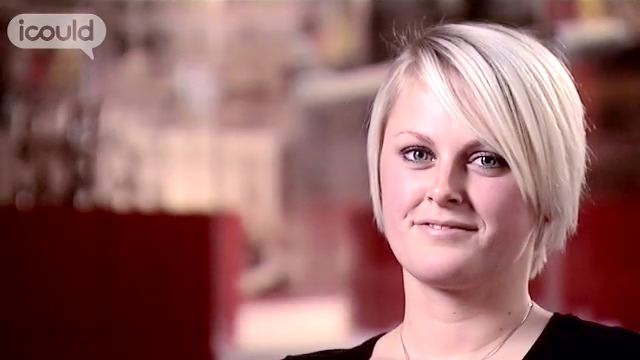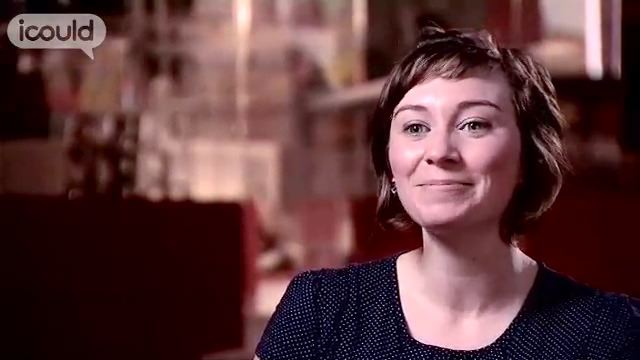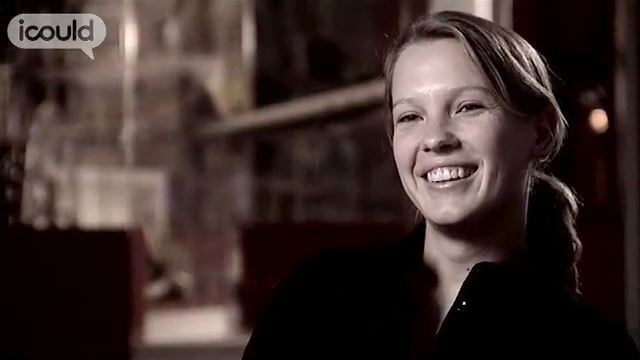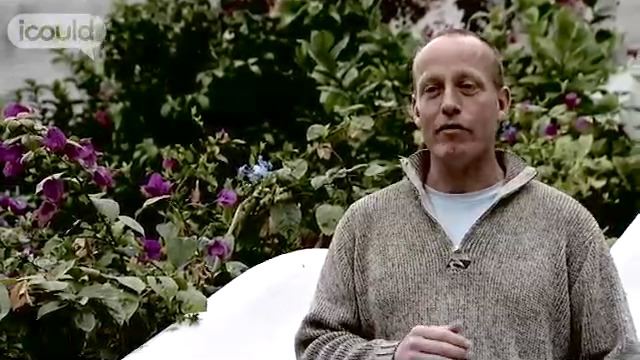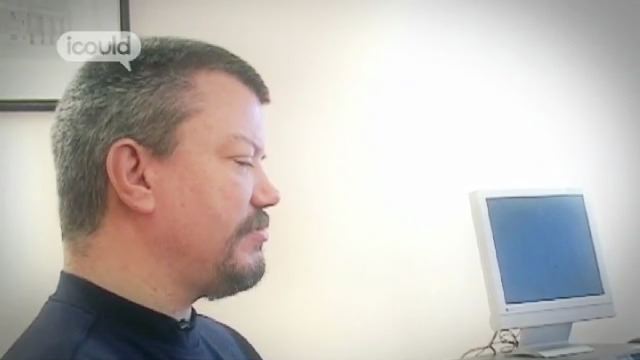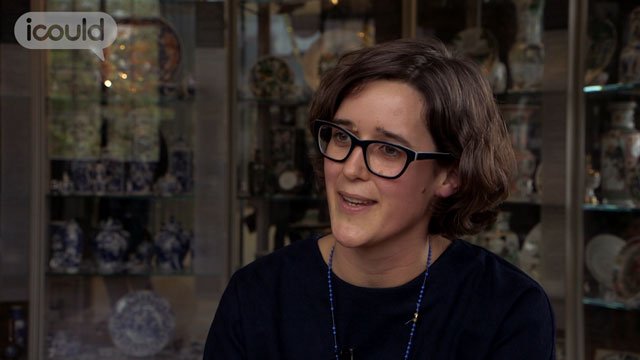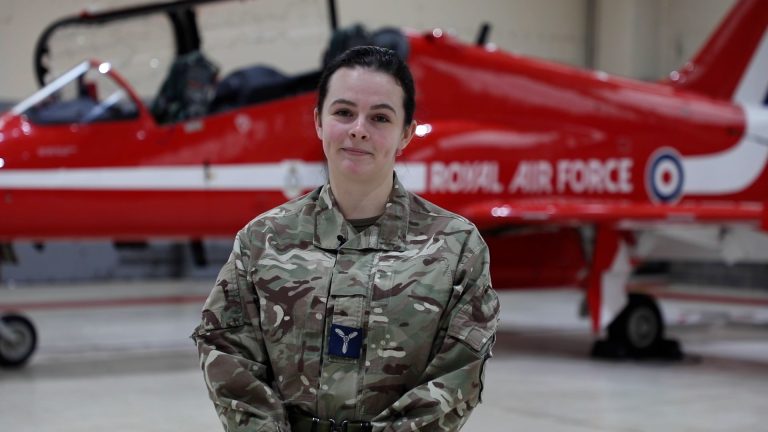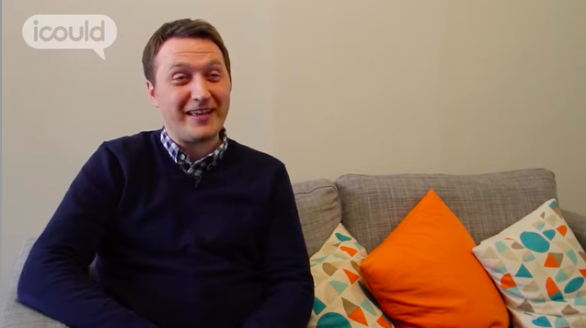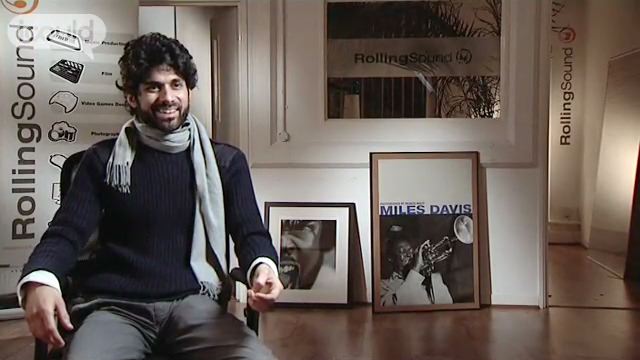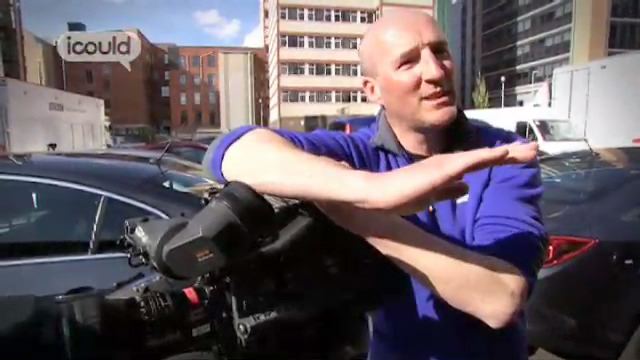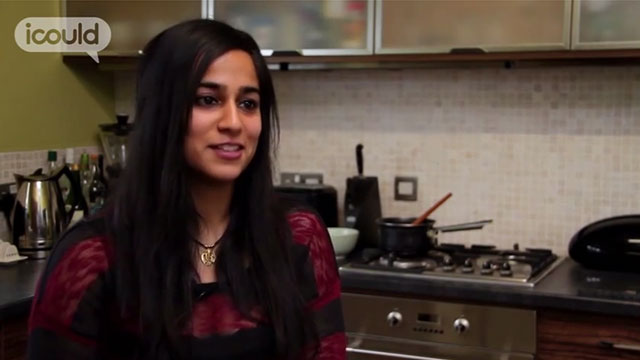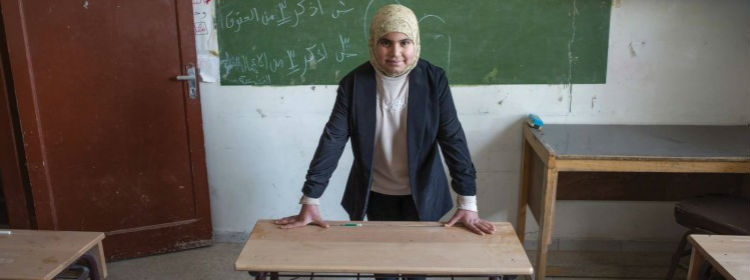Audio Archivist
BBC Belfast
Ian S
00:02 My name is Ian S I work for the information archives and I’m an audio archivist with the BBC Northern Ireland.
00:09 I take the old reel to reel quarter inch tape programmes and transfer them onto CD, that’s what I do at the minute. And then when we get hopefully big enough server space, I will transfer all those CDs on to the server. My father and sister are both totally blind as well it’s hereditary. It’s congenital glaucoma so it took over about eight years of a gradual sort of decrease in sight.
00:40 You wouldn’t have noticed a difference between what sight you had from one month to the next it was very, very gradual. I was young, so, you weren’t fully understanding the seriousness of it, if you like. Of course I had to leave um mainstream primary school and went to Jordanstown School which is a special school for blind and deaf, learned Braille eventually and just got on with it.
01:10 It definitely made me more independent because you just, you can’t sit back and just do nothing you’ve got to go out there and, contribute and feel part of the community and part of the, the population, you know. The careers officer at the college I went to said, look what do you want to do, and I said well I’m interested in sound. They basically laughed, so, that sort of spurred me on to actually, you know, get back at them and prove them wrong.
01:44 I’ve always been interested in hi-fi and audio, my father come off, that came from my father he’s, he used to build his own equipment so it was, it just rubbed off. Left college back here, did the usual thing that people, college leavers do, applications to everywhere, banks, offices everything. I got a job in an office for a Christian organisation it was like an aid scheme for a year and while I was doing that, there was an advert in the paper for a BBC pilot for some disabled people, I think it was ten, disabled people to do a course at River Stanley and then come and do work experience for the BBC. So I applied for that and got that, and then, literally while I was here, I got talking to personnel people, I wanted to be in, for engineering um just asked her, is there, is there any possibility of doing any work with sound. Um she went away and thought about it, come back and asked other people and I started as an audio assistant, then I was trained in Evesham for the BBC.
02:57 Involved studio based work putting programmes together, editing, mixing sound, just busy making programmes.
03:08 No it’s been fantastic. Because everything was being digitised they brought in touch screen technology for a lot of the basic controls for the, the mixing desk and the operation of the studio so, that was me basically out. I couldn’t obviously use a touch screen whereas before I had it was all jack plugs and buttons and dedicate, dedicated buttons and knobs and that.
03:34 Sort of disappointed but, it is progress of sorts. 03:38 I have a busy sort of social life, I’m in two fishing clubs, sea angling which, which I really enjoy it’s a good crack. I ski at least once a year, and I’m also in a band which keeps me very busy.
03:56 END
Ian Snowden is an audio archivist with the BBC Northern Ireland. He has a hereditary condition which made him lose his sight at an early age, he says “It definitely made me more independent because you can’t sit back and just do nothing you’ve got to go out there contribute and feel part of the community and part of the population”. Ian knew he wanted to work with sound, but was laughed out of a careers office when he asked about it. This spurred him on and he eventually found the job with the BBC. He enjoys a very active social life doing things like fishing, skiing and playing in a band.
More information about Chartered architectural technologists, planning officers and consultants
The UK average salary is £29,813
There are 37.5 hours in the average working week
The UK workforce is 47% female and 53% male
Future employment
- Analyses information to establish the nature, extent, growth rate and likely development requirements of the area
- Examines and evaluates development proposals, consults statutory bodies and other interested parties to ensure that local interests are catered for and recommends acceptance, modification or rejection drafts and presents graphic and narrative plans affecting the use of public and private land, housing and transport facilities
- Develops construction project briefs and design programmes and advises clients on methods project procurement, environmental, regulatory, legal and contractual issues and assesses environmental impact
- Monitors compliance with design, statutory, and professional requirements, administers contracts and certification, carries out design stage risk assessments and manages health and safety
- Evaluates and advises on refurbishment, recycling and deconstruction of buildings
- Prepares designs, building plans and drawings for use by contracts and investigates proposed design with regard to practicality, cost and use
- Surveys land uses and prepares report for planning authority and issues development permits as authorised
- Liaises with engineers and building contractors regarding technical construction problems and attends site meetings, as the lead consultant or as part of the team.
- Provides expert advice on issues related to planning and development, including practical, regulatory, legal and statutory matters
- Chartered architectural technologists specialise in design, underpinned by building science, engineering and technology applied to architecture within projects.
